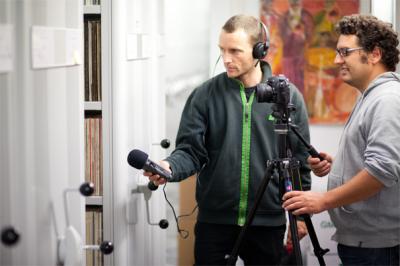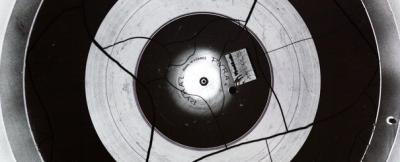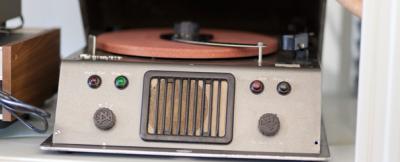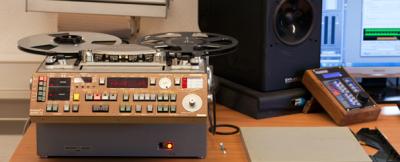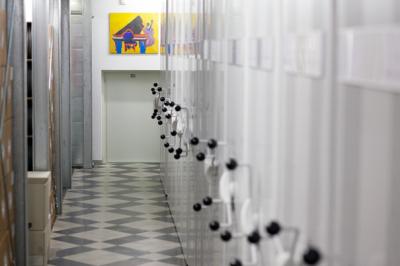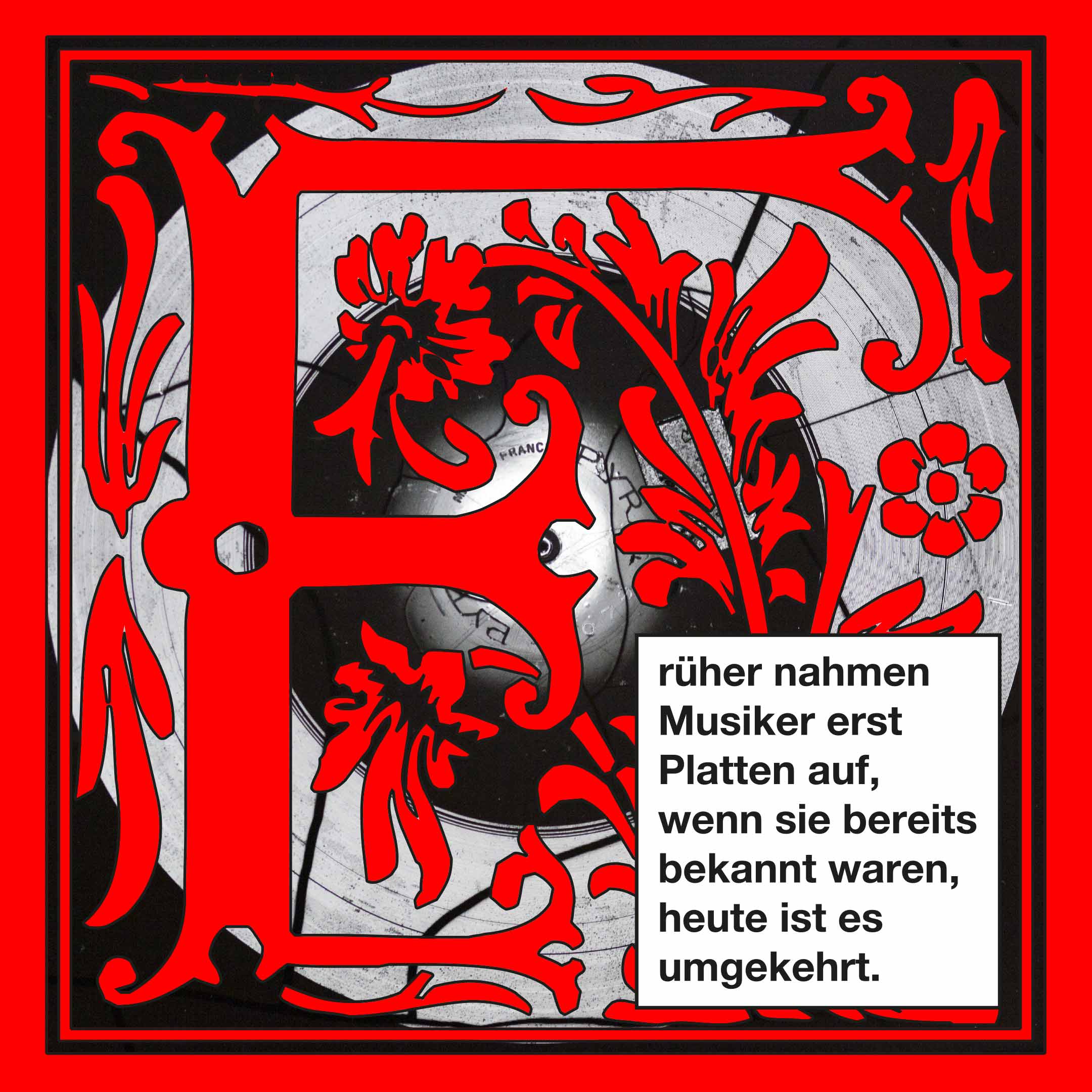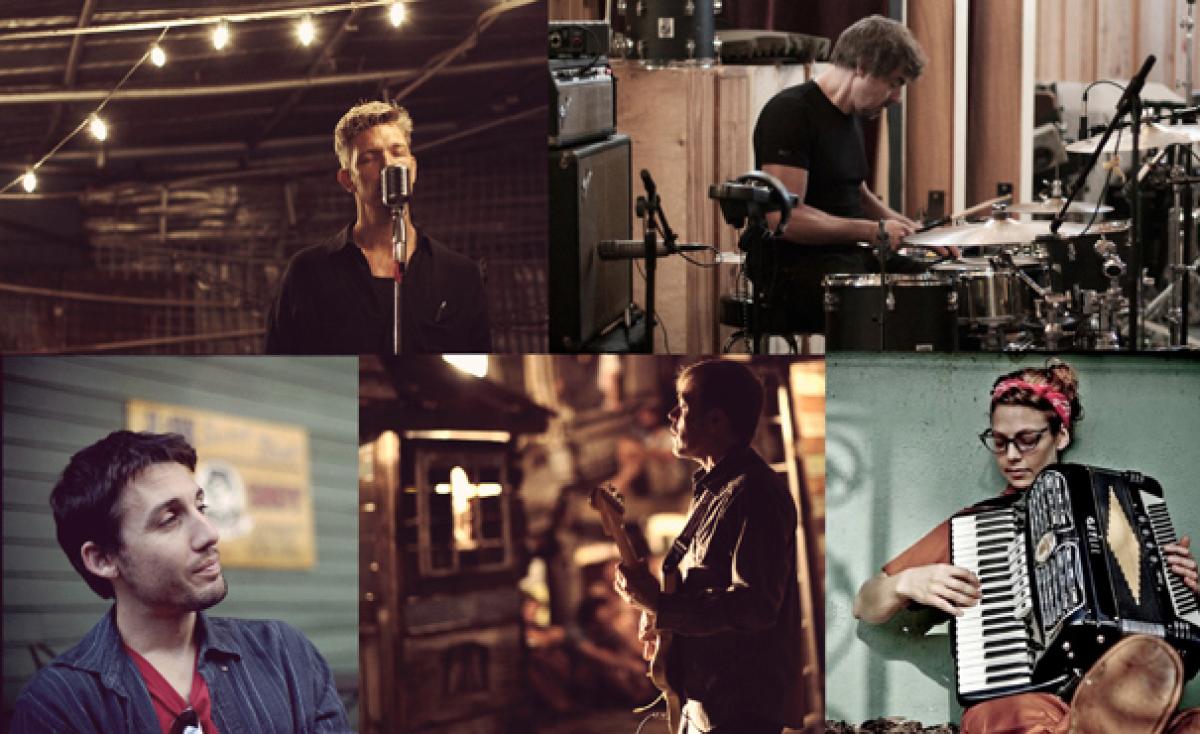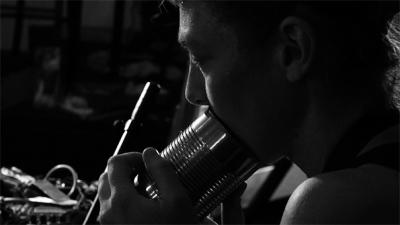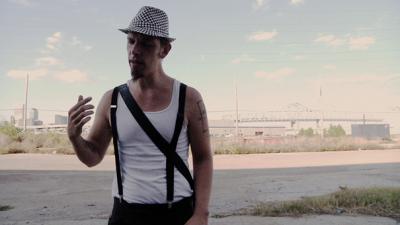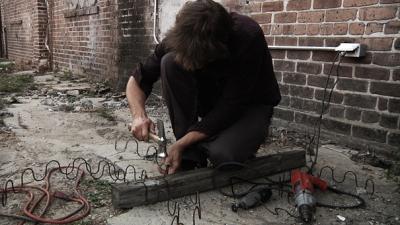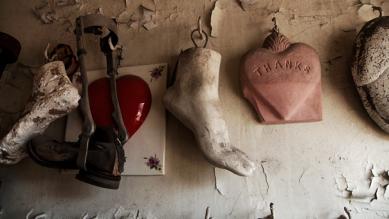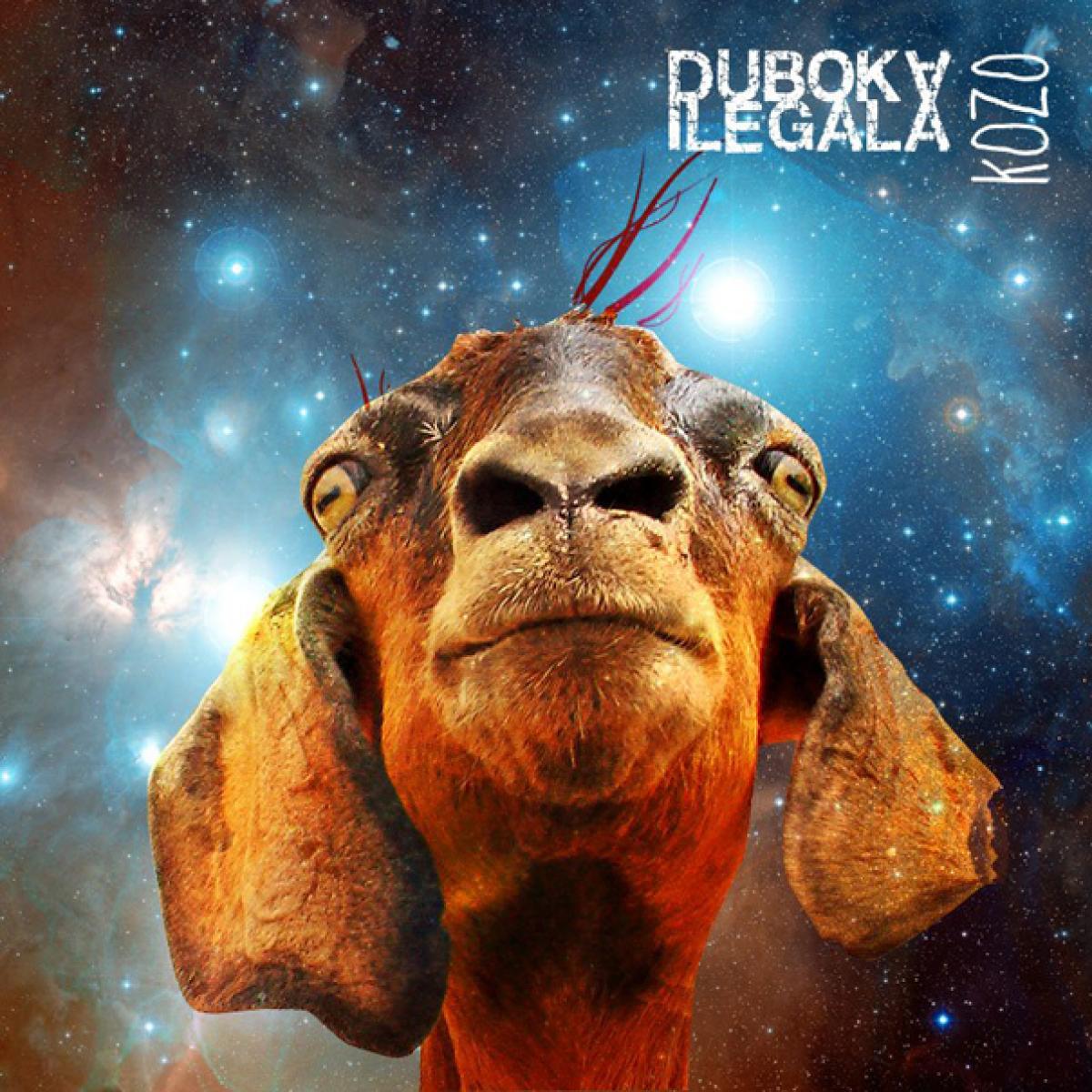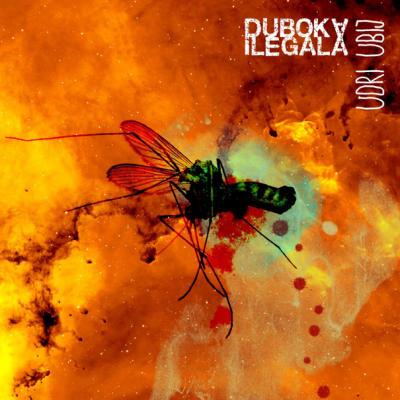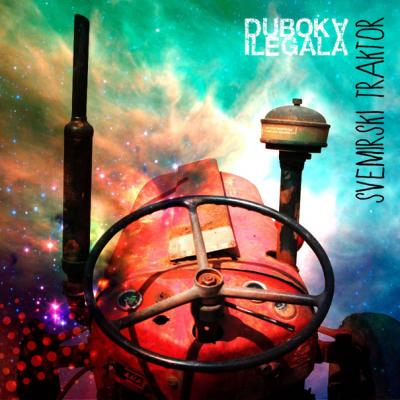Duboka Ilegala («Deep Illegal») perform trash-hop, a genre that mixes low and dark, live played trip-hop, with symbols and markers of Serbian trash-turbo culture. «Our main reference is the absurdity of everyday life», singer Shonegrad O'Connor writes in our e-mail interview.
[Thomas Burkhalter]: Hi Shonegrad, how is life?
[Shonegrad O'Connor]: Life is great, thanks. When it rains, it rains – but in the end we are all wet.
[TB]: Tell us a bit about Duboko Ilegala. What is the band about?
[SOC]: Duboka Ilegala started out as a music workshop back in 2001. The four of us (Sobot Suhi, Andy Pavlov, Biftek Zdravkovic and me) had a 2-hour radio show on SKC radio station and the initial concept was to mix all sorts of sounds with live instruments and present some of the sounds we bumped into while exploring different expressions and concepts. Most of the songs were initially made digitally and then recycled through playing live instruments, then re-recorded and combined with the initial idea to make the final piece. It was (and still is) a fun and joyful process. We had numerous guests from the world of music, drama and other art forms. They were all shrouded in dust, dark or fog, just as we were at the time. Everything was absurd around us, so it was only natural to follow that path. We even held a music competition, where competitors had 5 minutes to make a song live on the air. After SKC radio was shut down, we went to deep cover and made sketches for a lot of songs over the next five-six years. Then, last year we decided to make the album and record the songs in the studio. Our friends, Uce and Neki Stranac (from Studio Shtayga and ShazaLaKazoo) offered their help, connections and know-how and so Plitka Magistrala saw the light of day. Currently, we play live mostly as a DJ and MC duo, but there is a much larger crew that played in the studio and I hope we will be able to tour more as a full band.
[TB]: I see that some of your band members studied at the Conservatory, and/or play New Music and Classical Music? Can you tell us a bit more, about you guys. How do you earn your living?
[SOC]: Most of us have regular day jobs - Graphic designer, Software developer, Sociologist... Uce and Andy are professional musicians. Andy is a pianist, he plays as a part of Piano Duo LP and is in another great band called Ola Horhe. Uce is one half of ShazaLaKazoo and they seem to be taking off to a great career. It's all different music styles, but in my opinion, it is our strength, because we are able to walk through all genres without paying attention to what and how it is defined.
[TB]: To re-work Trash Culture with principles of Experimental music seems an international trend. Do you have references and influences that you like?
[SOC]: Our main reference is the absurdity of everyday life. Everything is upside-down and inside-out. We had our influences, of course, from John Cage to Alice in Chains. We also listened to a lot of trip-hop in the beginning and most of our first songs were under 100bpm. Personally, I admire Tom Waits, Nick Cave and Saban Bajramovic in terms of their lyrical and signing skills, their approach to song writing and live shows.
[TB]: You guys work with elements of Turbo Folk, you state in your press release. Please tell our readers. What was Turbo Folk about in the Milosevic years, and what it is about now - I keep hearing it again became a rather non-political and «clean» trans-regional pop music.
[SOC]: Turbo folk was an important part of the war propaganda machine. It was never directly political, but the politicians put it into one context, so we decided to take it out, chew, slice, distort it and spit it back. We tortured the hell out of it and it was fun. We were able to spice it up with our own lyrics, or use existing ones taken out of context. But it wasn't only turbo folk - we explored traditional folk songs, new electronic music, jazz and even rock'n'roll. At the same time we wanted to create dozens of new expressions and genres: Chain Hop, Silverbeat, Quazzy Jazzy and Trash-hop (which is the tag we like to wear most). Today, if you take a look at Turbo folk it is a lot less interesting - seems like a mellow leftover substance without shape and personality. Mostly it is just about copying popular Greek and Turkish songs.
[TB]: How do you guys approach Turbo Folk musically and lyrically. Which elements do you take over? Which do you leave aside?
[SOC]: It is always different - one of the main goals is that no song should be the same. I love doing different things at the same time and you can hear that listening to the album J. That's why we like to say it's like standing between 4 cafés and hearing the mix of music from all of them. Lyrically, there is a lot of stuff that is really inspirational and funny. Sometimes I take the title and make a completely different song, sometimes it is the singing style, sometimes it's a verse and sometimes it's none of the above.
[TB]: What is your audience? Do they understand your parody?
[SOC]: At first, it was only our friends. We had gigs with only one or two people present in the past. Now that the album is out and we got a little bit more active in social networking, more people heard the songs and now we have people in Uzice, Belgrade, Pancevo, Novi Sad and even Sarajevo and Ljubljana that are spreading the word and promoting us in a way. It was never really about understanding. I see it more as storytelling, where the final message is actually just your interpretation. There is no single true answer so the more questions are raised, the better the song. We're not trying to be smart asses or take ourselves too seriously - that's what destroys the fun.
[TB]: How is the situation for musicans like you in Serbia and the Balkan. Do you find places to perform?
[SOC]: It is hard if you think of living off of music. That's probably the case anywhere in the world. For me, music is pure pleasure, so I think it is going pretty well, we have more and more invitations to play and our performances are getting better.
[TB]: How about the international interest? Have you plans to tour internationally?
[SOC]: Yes we do. Although, it is a bit tricky if people don't understand the lyrics, so we are usually performing in the Balkan area, or somewhere where there are people who can understand «our language» (whatever it is called).
[TB]: These were our questions. You can relax now. What are your plans for the next 60 minutes?
[SOC]: I don't plan that far ahead, but now that you mentioned it, I might do some work today.
